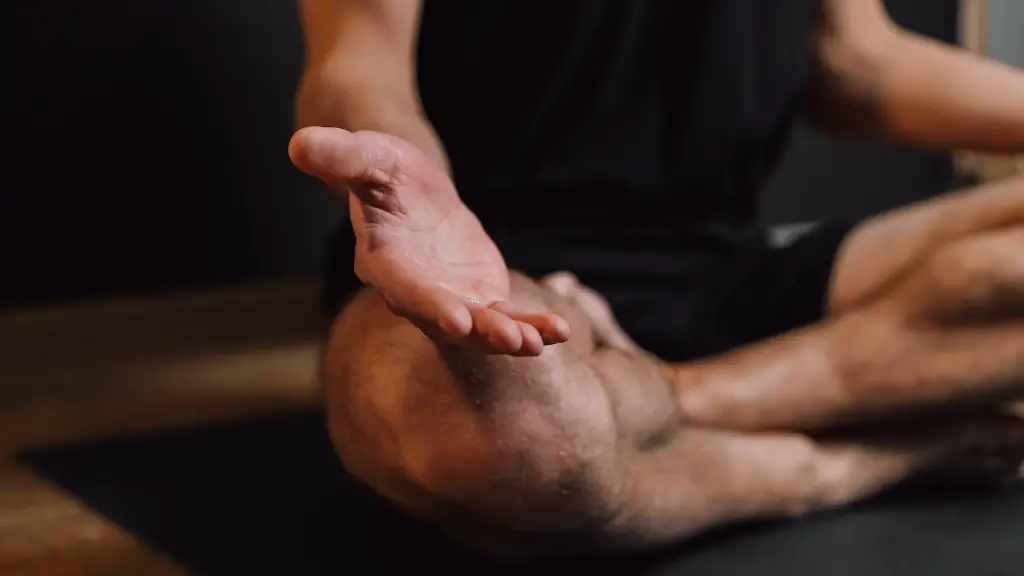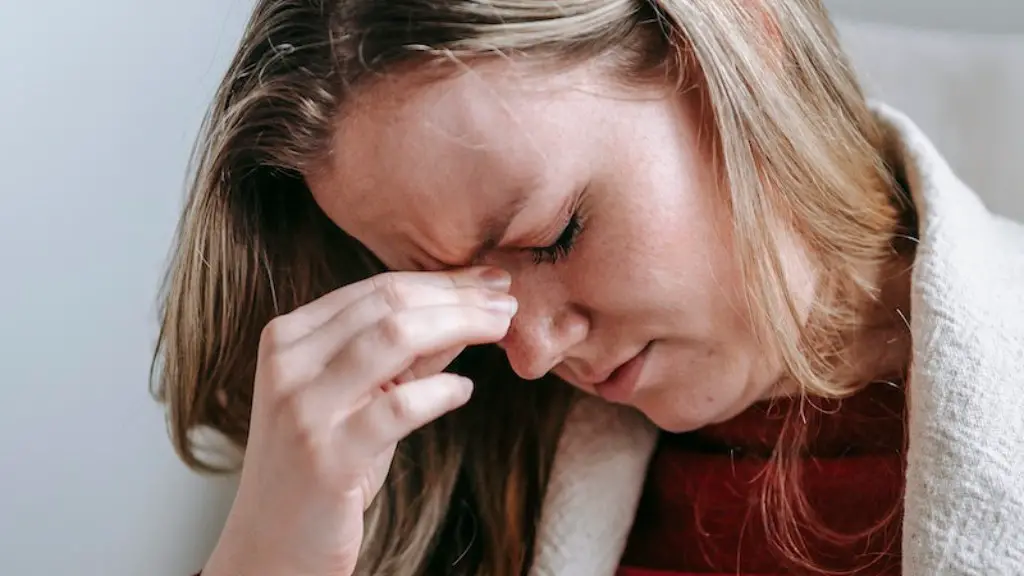There are many possible causes of urinary tract infections (UTIs), but one potential cause is stress. Stress can manifest in many different ways, both physically and emotionally, and it is possible that one of these manifestations could lead to or contribute to a UTI. While stress is not a direct cause of UTIs, it is important to be aware of the potential connection between the two.
There is no definitive answer to this question as stress is a complex issue with many potential causes and contributing factors. While some research suggests that stress may be a possible trigger for UTI development, more studies are needed to confirm this link. It is important to note that stress is not a direct cause of UTI, but rather, it may increase the likelihood of developing the infection by weakening the immune system. Therefore, managing stress may help to reduce the risk of UTI.
Can anxiety cause UTI like symptoms?
If you suffer from high stress levels or anxiety, you might also develop a urinary tract infection. Can stress cause a UTI? Not directly. However, stress can increase your cortisol levels, which can affect your immune system and make you more prone to infections.
Stress can have a negative impact on the urinary bladder and can worsen symptoms of urinary bladder dysfunction. This is especially true in cases of overactive bladder, interstitial cystitis/bladder pain syndrome, bladder outlet obstruction, and spinal cord injury-induced bladder dysfunction. It is important to manage stress in order to keep the urinary bladder functioning properly.
What is the main cause of UTI
A UTI is a common infection that happens when bacteria, often from the skin or rectum, enter the urethra, and infect the urinary tract. The infections can affect several parts of the urinary tract, but the most common type is a bladder infection (cystitis).
If you have a sudden onset of urinary symptoms with no warning, it’s likely you have a urinary tract infection (UTI). UTIs are much more common in women than men, and most often occur when bacteria from the rectum or vagina enter the urethra and travel to the bladder. Symptoms include a strong urge to urinate, pain or burning during urination, cloudy or bloody urine, and pelvic pain. If left untreated, a UTI can travel to the kidneys, causing more severe symptoms. If you think you might have a UTI, see your doctor for diagnosis and treatment.
What could be mistaken for UTI?
Different conditions can cause symptoms similar to those of a UTI, like sexually transmitted infections, vaginitis, diabetes, and prostatitis to name a few. While it’s important to be aware of these conditions, it’s also important to remember that only a doctor can diagnose a UTI. If you think you may have a UTI, it’s important to see a doctor so that you can get the proper treatment.
It can be difficult to tell the difference between anxiety and a UTI based on pattern of urination alone. However, with anxiety some people may find they have frequency during waking hours and at times of heightened stress only. If you are unsure which is the cause of your symptoms, it is best to consult with a medical professional.
Does dehydration cause UTI?
Dehydration is a leading risk factor for UTIs because it can concentrate the urine and promote bacterial growth. However, many other conditions can cause similar symptoms, so a definitive diagnosis requires a urine culture. Many people mistakenly believe that a painful urination always indicates a UTI, but this is not the case. A urinalysis, or dipstick test, may be used to screen for a UTI, but it cannot confirm the diagnosis.
Chronic stress has been shown to alter the course of immunity, shifting from T helper 1-mediated cellular immunity to T helper 2-mediated humoral immunity. This shift can impact the course of an infection, as well as the susceptibility to a microorganism. Therefore, it is important to manage chronic stress in order to maintain a healthy immune system.
Can you get a UTI from being run down
If you are feeling run down, it is important to rest and give your body a chance to recover. This is because when you are tired, your immune system is not as strong and you are more susceptible to getting sick. For example, you may be more likely to get a urinary tract infection (cystitis) if you are tired. So, if you are feeling run down, take a break and give your body a chance to heal.
If you’re experiencing any of the above symptoms, it’s possible that you have a urinary tract infection (UTI). A UTI is an infection that can occur in any part of the urinary system, including the kidneys, ureters, bladder, and urethra. While UTIs are more common in women than men, anyone can get one. UTIs are usually treated with antibiotics.
Can azo get rid of UTI?
AZO Urinary Tract Defense does not cure a urinary tract infection. Its purpose is to keep you comfortable and to control the infection until you can see your primary care provider. Your doctor will prescribe an antibiotic medication capable of eliminating the bacteria responsible for the infection.
A bladder infection is a type of urinary tract infection (UTI) that is specifically located in the bladder. While all UTIs involve some level of infection in the urinary tract, a bladder infection specifically affects the bladder itself. Bladder infections are relatively common, especially in women, and can often be treated effectively with antibiotics. However, if left untreated, a bladder infection can spread to the kidneys and cause more serious health problems.
What feels like a UTI but isn’t a UTI
PBS is a condition that is characterized by pelvic pain and the sensation of needing to urinate frequently. Although PBS is not caused by an infection, the symptoms can be similar to those of a urinary tract infection or UTI. PBS is also sometimes referred to as bladder pain syndrome or interstitial cystitis. The exact cause of PBS is unknown, but it is thought to be the result of an inflammation of the bladder wall. Treatment for PBS typically involves a combination of medications and lifestyle changes.
There are a few things you can do at home to help treat your UTI:
– stay hydrated by drinking lots of fluids
– urinate frequently to help clear bacteria from your bladder and urethra
– use gentle heat to reduce abdominal pain and discomfort
How long does a UTI last without antibiotics?
A urinary tract infection (UTI) is a common condition that can cause symptoms such as pain during urination, a strong urge to urinate, and cloudy urine. Antibiotics are often necessary to clear the infection, but in some cases, they may not be required. If symptoms are persisting for longer than a week, it is likely that antibiotics will be necessary.
If you are experiencing burning or pain when urinating, it is important to see a healthcare provider as this could be a sign of a UTI (Urinary Tract Infection). Other symptoms of a UTI can include feeling a strong urge or need to urinate but only being able to produce a small amount of urine, as well as pain in the lower abdomen or pelvic area. If left untreated, a UTI can lead to more serious issues such as kidney infections.
Warp Up
There is no definitive answer to this question as stress is a very individualized experience. Some people may find that stress contributes to their likelihood of developing a UTI, while others may not notice any correlation. It is important to pay attention to your body and how it responds to stress in order to determine if it is a factor for you. If you are concerned that stress may be contributing to your UTI risk, talk to your doctor about ways to manage it.
Stress can cause UTI by affecting the immune system. When the immune system is weakened, it can’t fight off infections as well. UTI is a common infection, and stress can make it harder to treat. If you’re experience stress, try to find ways to relax and take care of yourself.





